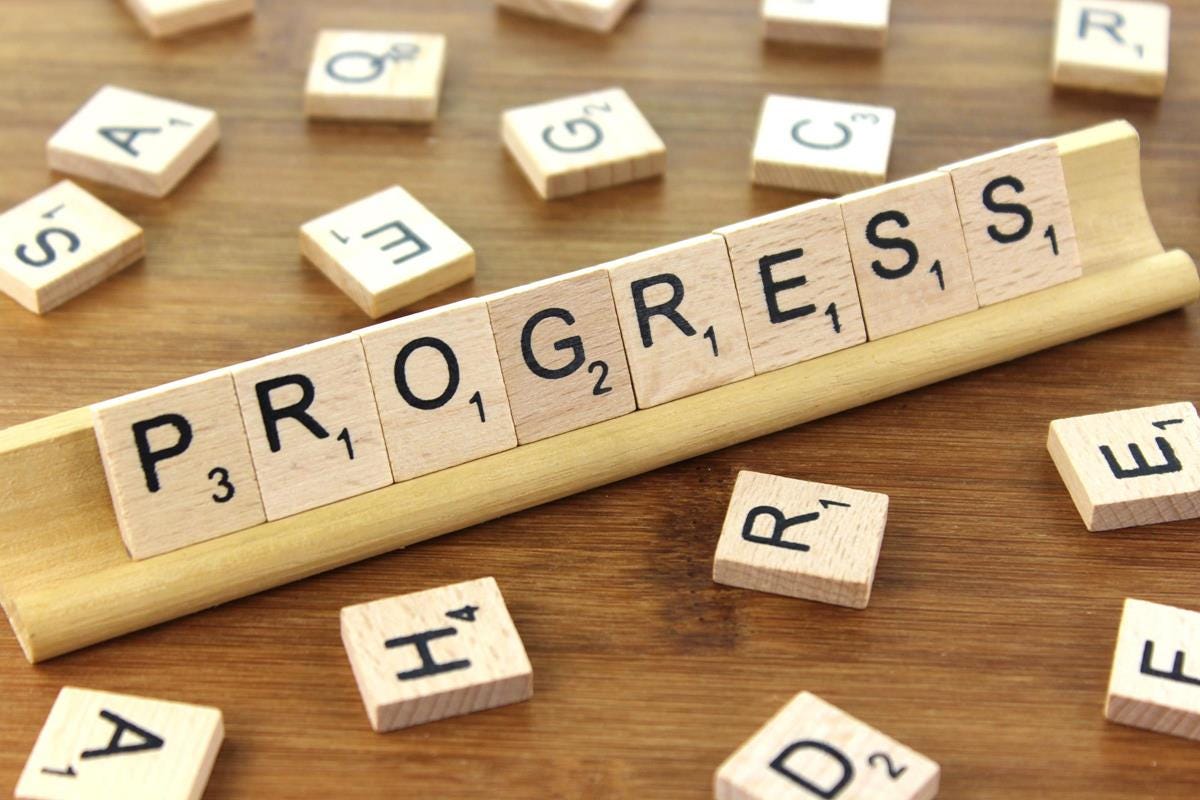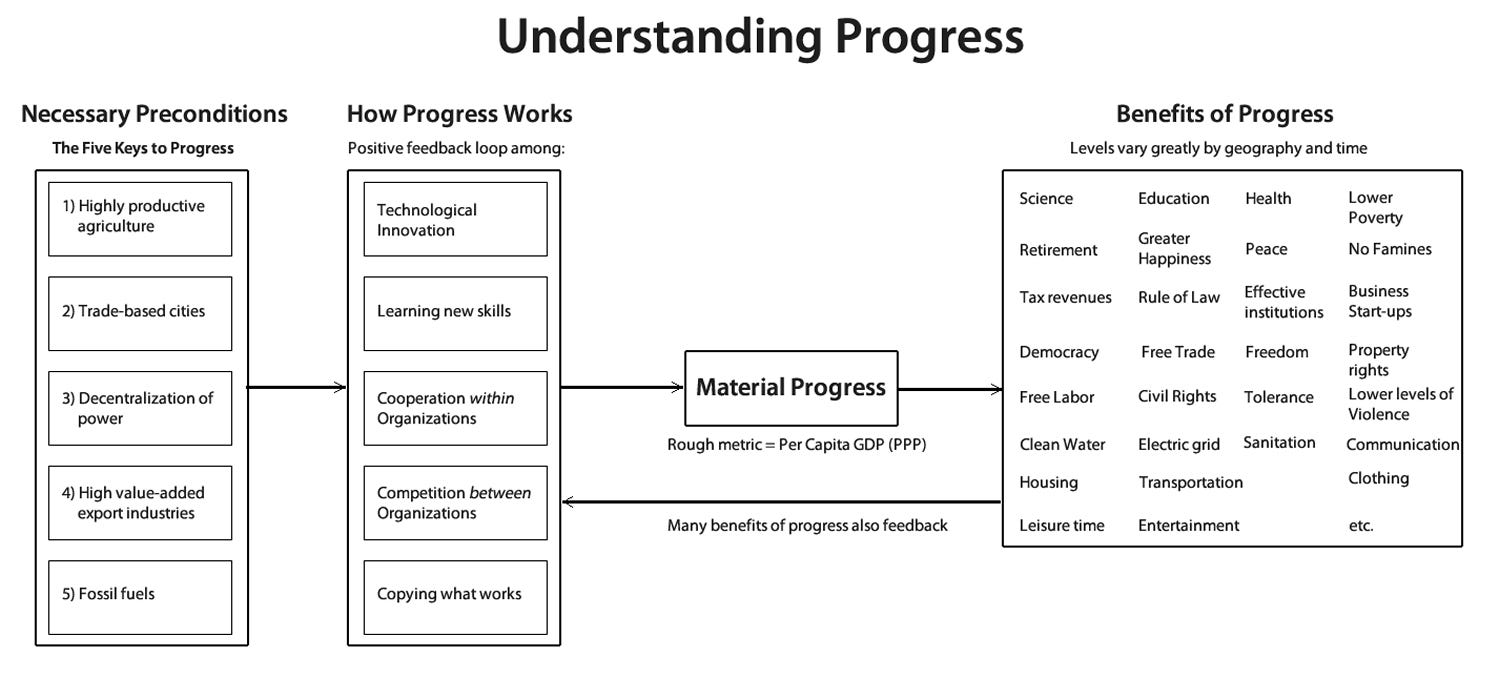Understanding human material progress (the series)
A new theory that explains the origins and causes of Progress and how it works in our daily lives.
Make someone’s day: Gift a subscription to your friends and family!
As of this article’s publication date, I have been writing on Substack for about 1.5 years. During that time, I have written just over 400 articles on many topics. In contrast to the vast majority of Substack columns, almost all my articles are tied together by a common theme: human material progress:
what it is,
how it has transformed our lives (largely for the better)
when and where it started
what caused it,
how progress spread throughout the world,
how we can keep it going,
how poorer nations and individuals can experience the same progress, and
who is against progress or at least skeptical of its existence.
I guess Substack readers enjoy reading my articles as subscriptions are growing fast. Thank you all for using your scarce time to read my articles.
Unfortunately, the organization of Substack is not optimized for new readers joining an existing Substack column with as many articles as mine. It is easy for new readers to get overwhelmed by the number of existing articles and just read the most recently published article. If you do so, I fear that you will miss my most important arguments.
To make up for this, I will be publishing a series of “Table of Contents” articles over the coming weeks. Each will consist of a sequential list of articles on a specific sub-topic related to human material progress. I try to make each article self-standing, but I would recommend reading the articles in the displayed order.
Enjoy reading!
Table of Contents for the “Understanding human material progress” series:
Understanding the causes of modern material progress (The Five Keys to Progress)
The First Key: A highly efficient food production and distribution system.
The Second Key: Trade-based cities
The Third Key: Decentralized political, economic, religious, and ideological power.
The Fourth Key: At least one high-value-added industry that exports to the rest of the world.
The Fifth Key: Widespread use of fossil fuels.
Understanding How Progress Works once the Five Keys are established.
People learning new skills to support those technologies.
Competition between organizations for scarce resources.
People copying successful technologies, skills, and organizations and then modifying them to solve different problems.
Consumption of vast amounts of useful energy. Without energy, none of this can happen.
The graphic helps you to see all how these factors interact:
If you enjoyed reading this series of articles, you might also be interested in reading my “From Poverty to Progress” book series:





You realize you've pretty much created a course with nod to history, acknowledging debates along the way. Very cool!
Great idea to provide a TOC set of posts. Yes, as good as Substack can be for certain kinds of general theme writers and essayists, they do not support organization of content at all well. Over the last 15 years I have ended up saving various internet content to perhaps over 1000 Word files (partly so I can add my own emphasis or commentary). But my filing system for them, as well as for various bookmarked web links and email folder content is still subject to my personal limitations. I fear that no matter what form of organization one finds or creates, it still requires some level of remembering what was saved where, under what mindset. That is on us, your readers, to sort out. Sometimes it is beneficial to find that I have already saved and read a "new" post I find interesting, again, but that I had forgotten the details or that I had read it previously! [But if you have any suggestions on how to organize things generally, I would welcome that feedback :-) ]
Even though I have been following your Substack for a while now, I still needed reminding about your 4th Key to Progress on industrial export capability. :-(
After you complete this set of TOC postings, I respectfully request that you spend some more time addressing the Upward Mobility aspects of your studies. That is what induced me to start following your posts in the first place. We in the progress'ed West need to spend more time sorting our the merits and limits of various policies and approaches to achieve that, especially with our current (globally wide?) political dichotomies.